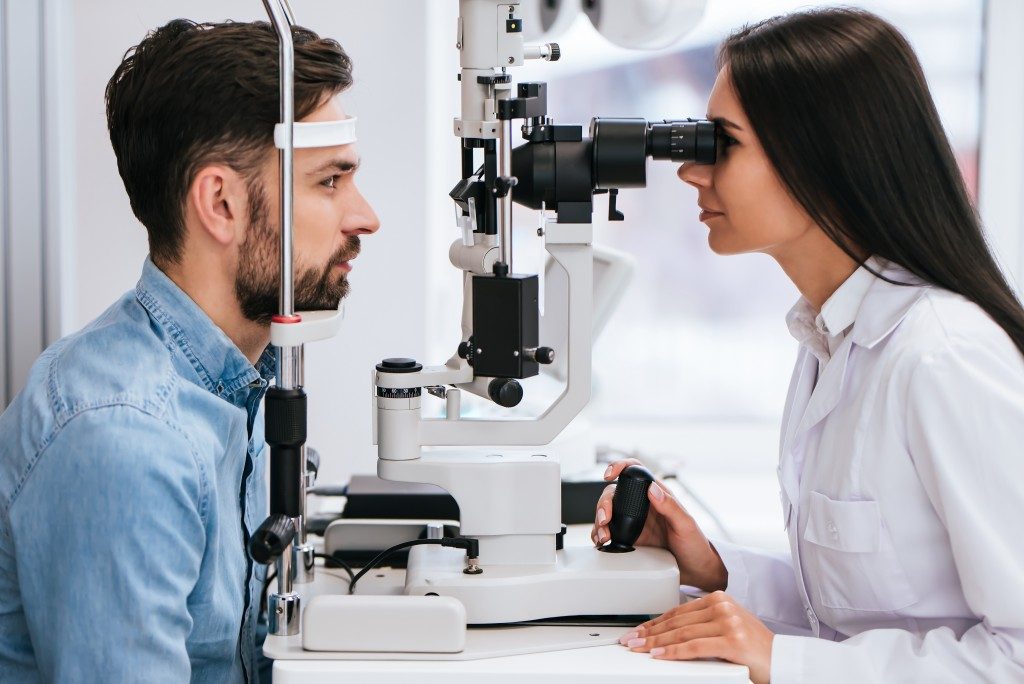The eyes are an important part of your body. Keeping them healthy will make you function at your best. Find out how to take better care of your eyes here.
In light of all this talk about perfect vision in 2020, which is an obvious play on words, how does one keep their actual vision in tip-top shape? Here are a few practical steps to keep your eyesight 20/20 (ar at least as close to it as possible).
7 Ways to Maintain a 20/20 Vision
1. See a specialist regularly.
Visiting an eye doctor regularly can help keep your vision in check. It helps assess risks of myopia, which when detected early can be treated to slow down the process. Comprehensive eye exams ensure that your vision is clear and comfortable.
2. Eat the right food.
You should include healthy servings of fruits and vegetables in your diet, especially green leafy and deep yellow veggies. Eating fish such as salmon, halibut, and tuna which are high in omega-3 fatty acids are also helpful in keeping your eyes healthy.
3. Do not rub your eyes when they are itchy.
While it may seem like a relatively harmless thing to do, rubbing your eyes can damage it in a number of ways. It can cause bloodshot eyes, conjunctivitis, scratches on the cornea, nerve damage which can eventually lead to vision loss (for those with glaucoma), and keratoconus.
4. Ease on the gadgets use.
If you spend a lot of time in front of the computer or your mobile devices, the risk of eye strain can be serious. Your eyes can easily get tired, especially if you fail to blink as often as you should. Reduce eye strain by following the 20-20-20 rule: every 20 minutes you spend in front of your device, look at something about 20 feet away from you for 20 seconds.
5. Use eye drops.

The use of eye drops helps keep the eyes lubricated and replace its natural moisture. They provide relief from dryness and irritation and promote comfort. It also helps bring healing to an injured eye reducing the feeling of scratches on the surface and flushing out contamination.
The use of glaucoma drops reduces the risk of blindness. However, this can only be used with proper prescription to prevent causing unnecessary damage to the eyes. When all else fails, consult an ophthalmologist if you will require laser eye surgery for glaucoma.
6. Wear sunglasses when outdoors.
Prolonged exposure to the sun can damage your eyes and increase the risk of cataracts and macular degeneration. Wearing sunglasses protects your eyes by blocking out 99% to 100% of UV-A and UV-B radiations.
7. Let your eyes get plenty of rest.
Resting your eyes is a great way to reduce strain from long hours of use, especially to those who are in front of computer screens. Darkness is the best way to let your eyes and its optic nerve rest from the stimulation of images. Palming your eyes with your hands or covering them with a soft blindfold when you sleep can help give your optic nerves more rest.
Take good care of your eyes and keep it as close to 20/20 vision as you can. They are an important part of your body. If you take care of them well, they will take good care of you.

